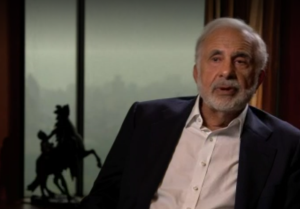Bill Gross is know as “The Bond King.” And with good reason: he co-founded PIMCO and helped grow it to almost $2 trillion in assets. Two trillion! He’s recently left the company, headed to Janus and he always has strong opinions.
A recent Bloomberg headline read: “Bill Gross Says the Good Times Are Over”. Is this really so?
I’ve written about Mr. Gross in the past. He’s also well-known for creating/popularizing the term “new normal.” Basically, new normal means the U.S. will experience a European-style economy: regular high-unemployment and stagnant/low GDP growth in the area of 1-2 percent yearly. My previous article disagreed with this notion. We were simply experiencing multiple bubbles popping over the last full decade (Tech Bubble, Housing Bubble, Commodities Bubble, Credit Bubble, etc. from 1999-2009).
With unemployment steadily dropping and GDP growing 4 and 5 percent in the most recent quarters, The Bond King is being proven very wrong.
But is he right about the current stock market party being over? Yes and no.
I completely agree that we’ll have a market correction (10-20% drop in stock prices) at any time. The U.S. markets have made record new highs and been up for six years straight. So, yes, the party’s over…in the short term.
But long term I think the party’s just begun. If you look at the past 90 years of the market, we have long up and down cycles. They usually last 15-22 years. It’s very, very clear when you look at a chart of stock index prices for this 9-decade period.
Our latest down cycle started around the year 2000. I think the long term cycle, or secular bear market, ended in 2013 when the DJIA broke through to new records. That’s roughly fourteen years. Right on track with history.
Now, in my opinion, we’re starting a new secular (long term) bull market. The kind that can last 15-22 years. But it could be shorter. Things have sped up: information, investment trading, technology, product cycles, careers, etc. This could compress the current secular bull to a shorter time….
Why might we be in a super-bull market? The fundamentals. Michael Jordan said “You can have all the physical ability in the world, but you still have to know the fundamentals.” The fundamentals of the U.S. economy and stock market have never been better. We’re hitting new records in GDP and corporate earnings as far as estimates go into the future.
For example, GDP will go from $17.4 trillion in 2014 to $22.1 trillion in 2019, according to the IMF. And S&P 500 earnings have hit new records for the past four, or so, years and are estimated to hit new records this year and next.
Those are the big fundamentals. Add to that lowering unemployment, real estate sector growth, growing consumer wealth and saving, and lowering consumer and corporate debt and that equals a very positive future.
